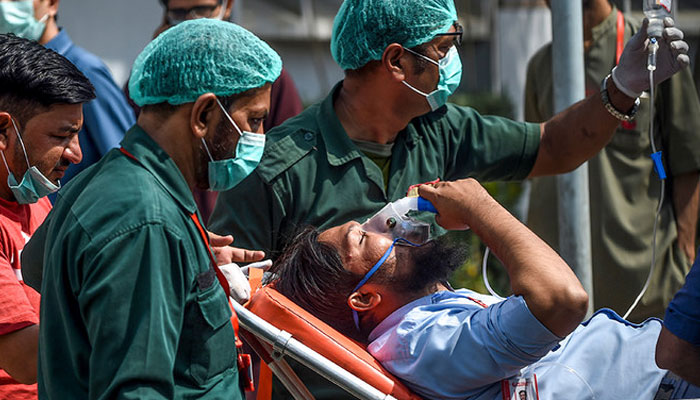Study says 11% Pakistanis have developed protective immunity against COVID-19
Study says use of mask, frequent handwashing in July was up by approximately 60% to 70%, respectively
ISLAMABAD: A government-led study in partnership with other organisations has concluded that almost 11% of Pakistanis have developed protective immunity against the coronavirus, said a health ministry press release on Friday.
The estimates were reported in the seroprevalence study launched in July by the Health Services Academy in collaboration with multiple partners including AKU and with technical support from the World Health Organisation. The press release said that the research was part of the WHO Unity Study which is being conducted simultaneously in 25 other countries.
"It was estimated that almost 11% of Pakistanis have developed protective immunity across Pakistan. It means that every 10th Pakistani has developed antibodies in their blood against COVID-19 virus," said the statement.
The ministry said that the study found that seropositivity was more in urban areas compared to rural areas. It also said that those who had contact with a COVID positive person were more likely to have antibodies in their blood.
"It was more common in young adults and significantly less in children and older adults," said the statement. It added that the research findings backed other studies that identified that older individuals were at the highest risk from a possible second wave.
"It was also found out in the study that the use of mask and frequent handwashing in the month of July was up to approximately 60% and 70% of the population, respectively," said the ministry. It added that the results showed the importance and success of the awareness campaigns carried out by the government in earlier months.
However, the study warned that areas with lower immunity rates may be at higher risk during the second wave of outbreak. It added that there was a need for enhanced sentinel site surveillance and ramping up of health facilities for COVID-19 treatment particularly in rural districts because of this finding.
"While further data analysis is being carried out the experts proposed conducting regular seroprevalence surveys to map the evolving spread and exposure to COVID-19 and perform pooled data analysis (combining data from other such studies) conducted in Pakistan for a more in-depth analysis," said the statement.
The ministry said that seroprevalence studies are carried out to assess as to what percentage of the population has developed protective immunity (antibodies) to the virus. It added that the "findings of the study will be used for policy decisions" in the future.
-
Security forces gun down 30 terrorists in multiple IBOs in KP: ISPR
-
MQM-P calls for new province in Sindh
-
US report validates Pakistan military edge over India: PM
-
Banned TTP poses serious threat to Pakistan security: UNSC panel
-
CM Afridi clarifies remarks on by-poll after ECP requests army deployment
-
Dubai sees 3.2m Pakistani passengers in 2025 as airport sets new milestone
-
Security forces kill 23 Indian proxy terrorists in KP's Kurram
-
Pakistan to construct island to boost oil exploration: report












